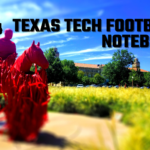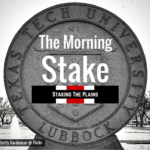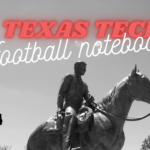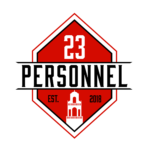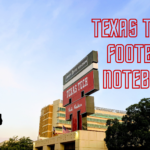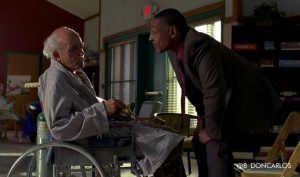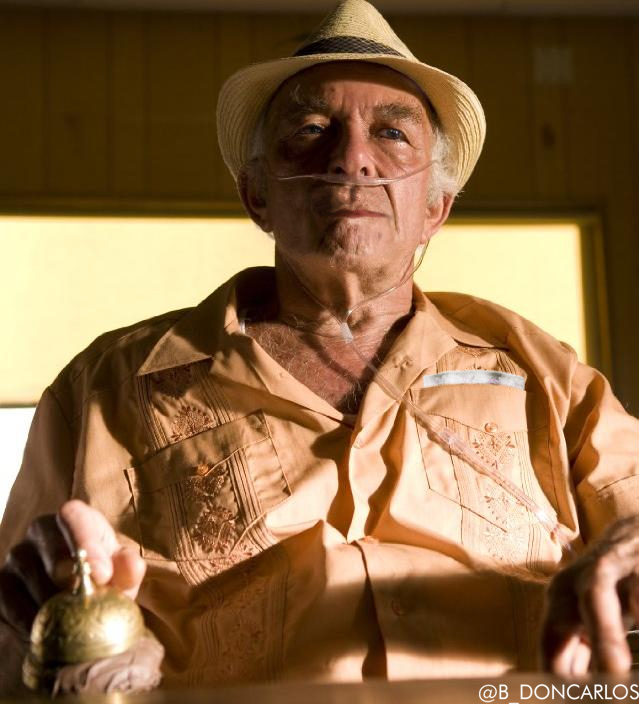IT WAS EARLY OCTOBER, STILL WARM OUT BUT NOT UNCOMFORTABLY SO. A lonely man sat, waiting at a bus stop on the edge of town with a strange smile on his face. Just a few minutes earlier he’d rid himself of the last remaining shackle that chained him to his former life and he was happy. Just for a minute he was happy.
The bus slowed to a stop, its brakes moaning and screeching in struggle against four tons of steel and the unforgiving law of inertia. The driver threw the double doors open with a hard jerk on the handle and asked, “Where you headed?”
“West,” the man said as he stepped first with his right foot, grabbed the railing with his left hand and pulled himself up into the platform next to the driver’s seat. He thought briefly about the pain in his legs and how suddenly even bus steps seemed an obstacle to ascend. “How much?” he asked. “Mister, you gotta give me a town,” replied the driver. The man squared his jaw out of habit and exhaled in sheer contempt. “Just… L.A….how much is a ticket to L.A.?”
“Twenty-two dollars.”
“Here’s forty,” he said. “Keep it.” Something in the handing over two twenties jarred him for a minute, as if he was recalling an unpleasant moment from his past. He shook it off and started down the aisle, looking for the first available seat.
Toward the back on the left, a young woman sat staring out the window and twirling her long, blonde hair with the fingers of her right hand. He sat next to her, not because he sensed an opportunity but because she reminded him of someone he’d left behind. In her lap rested a brown paper bag, probably containing lunch, and a weathered copy of Homer’s Iliad. He noticed the yellow “Used” sticker covering the “E” and “R” of “HOMER” in the upper right hand corner of the book. Below that were the words “Oklahoma University Bookstore,” stamped in block letters and black ink.
He’d made a life by observing the most mundane things, then somehow figuring out a way to make his audience look at those things in a different way; in a new way. The mundane became exciting and people wanted to buy it, whatever it was. He’d made a life out of it. So quickly absorbing the contents resting on the lap of his new traveling mate was routine.
She turned to him as he sat. “Hi, I’m Margaret,” she purred in a slow, southern voice. “I’m Hector,” he said, choosing the lesser known character from the book Margaret was presumably studying. And she didn’t flinch. There was no obvious reason for his white lie. Layering himself in anonymity was always comforting and the danger in choosing the name, a moment that he almost hoped she would see through, felt somehow right. Tricking people, tricking women, felt right.
The bus ride was uneventful. He and Margaret chatted intermittently between her restless naps and his finishing up Michener’s Hawaii. They made stops in the sleepy Panhandle town of Shamrock, Texas where he picked up a copy of The Velachi Papers at the Tower Station and later stopped again in Amarillo for dinner at a café next to the Ranchotel.
Margaret was studying English at OU and was on her way to Flagstaff to visit her dad who had recently fallen ill. “He’s lonely,” she said. “Sad, too… He’s always so sad.” She turned her gaze toward the window, her voice trailing off. He instinctively put his hand on her shoulder but for once words escaped him. Words, phrases, slogans were his talent but now they escaped him. He was just too tired. He couldn’t muster them anymore. So in silence he stared out the window too. He could vaguely see the passing cars and telephone poles but for the most part he saw only a dim reflection of himself.
In Santa Rosa, New Mexico the bus stopped again for loading those few eager to leave Santa Rosa and unloading those fewer eager to stay. The driver announced that this would be their last stop until Albuquerque. Margaret went inside to get a Coke and he stepped inside a phone booth with the word Salamanca painted vertically on the pane of glass facing the bus station. It was 8:42pm in the New Mexico desert, 11:42 on the East Coast. But he wanted to talk to her.
—–
A weary classmate answered the community phone in the hallway of the dorm and agreed to get her. “Sally,” she said, knocking on her door. “Sally, it’s your dad.”
The receiver slipped from his hand and dangled from its shiny metallic cord near his waist while his shoulders slumped. He had become a millionaire by doing his job exceedingly well and now it was finally time to pay the tab. Betty was dying; Dying in part thanks to his words. His beautiful, manipulating, powerful words.
Gathering himself he realized he had to get back. He had to catch the first bus back to Texas or Oklahoma or anywhere and catch a plane to New York. He reached inside his pocket for another dime and dialed Meredith’s apartment. She answered sleepily and he barked orders to her in hopes of building a makeshift itinerary that would get him back to Manhattan before morning. But before he could finish she cut him off. There had been visitors at the office that morning looking for him. Military men. Distinguished, serious military men.
And he realized the tab was growing larger, so much so that he couldn’t pay it now. “Promise me you won’t tell anyone I called,” he said, desperately, and again the receiver fell— this time on purpose.
He grabbed his bag, got back on the bus and fell into his seat beside Margaret. “Everything ok?” she asked. He didn’t answer, preferring instead to light a cigarette and stare into the distance– focusing on nothing; focusing on everything.
—–
WHETHER DICK WHITMAN, DON DRAPER OR NOW, HECTOR SALAMANCA, there is one characteristic that will always identify the man: the particular way in which he enters a room. His hand moves quickly toward the solid steel handle, often just after adjusting his cuff. He grabs firmly and pulls while his feet seemingly glide through the now open door’s threshold and into the open space. He leaves in the same way—quick, forceful turn with the door opening and closing behind him powerfully, gracefully even.
The door is equal partner. Made from heavy oak or mahogany with solid brass or stainless steel handles is crucial, the entire structure built to serve as both barrier and opening for powerful men. Don Draper opening a door made from particle board or hollow core honeycomb with an aluminum handle would be too wispy, too void of heaviness and musk.
It was those kinds of luxuries that Don, now Hector, missed the most. The heavy doors in the high rise apartment buildings and offices in Manhattan always had a faint promise of a hiding surprise; the spinning of a bottle cap deftly into one hand while pouring three fingers of bourbon into a crystal glass with the other. Those little luxuries were all gone.
Now Hector was confined to a wheelchair. A debilitating motor neuron disease had taken virtually everything but his mind. While serving time in the New Mexico State Penitentiary on drug charges, the invisible enemy taking his ability to walk, his ability to stroll, his ability to glide through doors, eventually won out. The pain he first remembered feeling as he stepped on the bus in Oklahoma had been a warning shot. His disease gradually took hold and beat him back, mercilessly.
—–
He’d made it as far as Albuquerque back on the fateful day in October 1970, said goodbye to Margaret and with it every tie to reality. She seemed confused by his sudden change in plans and sad to see him go.
He checked into a motel near the bus station and panicked. He tried to buy liquor but indescribably chose heroin instead. Perhaps it was out of convenience, the dealers were all around, or perhaps he was trying to finally self-destruct. Not surprisingly he got addicted and quickly spun out of control. The heroin was bad, he knew it, but it took the pain away like nothing he’d ever experienced; the pain in his head, the pain in his past and the ever increasing pain in his legs. He talked to Sally on occasion but those calls grew sporadic as he went more quickly down into the darkness. When Betty died he was too strung out to remember to send flowers.
By 1973 he was running out of money and all signs of his former-self were gone. His deteriorating charm still carried him through some difficult situations and his immersion into the culture and language was amazing. In three short years he spoke fluent Spanish, sometimes forgetting to even think in English. When he wasn’t getting high he was reading Spanish textbooks or sitting in a dark theater watching Mexican movies–especially anything starring Jacqueline Andere. To make his transformation complete his hair was almost gone and he was a bit paunchy. He also had a new social security card and another new name.
Maria was originally from Juarez and worked as housekeeper in the dirty motel that Hector now called home. From time to time he’d try to seduce her with his smile but she was smarter than that. She’d seen in his room the paraphernalia and depravity that now consumed him. They talked, mostly in the mornings over coffee in Spanish. He’d ask her out and she’d decline. If he cleaned himself up, maybe she would. She had a young son and couldn’t risk taking a chance with a junkie.
In 1975, he did. He dried out in early spring for a month, never leaving his room. He almost died from withdrawals but fought through. Tragically and ironically, Roger and Peggy died when their Learjet crashed en route to Albuquerque while he was locked in his self-imposed prison. They were scheduled to meet with two computer programmers named Bill Gates and Paul Allen who wanted to discuss advertising for their startup. Peggy thought the account might have potential for their new boutique agency. Roger thought the trip was a waste of time.
No one was around to tell Hector about the loss of Roger and Peggy, but somehow he knew. He saw them while in dazed hallucination and said goodbye. When he emerged, his body clean from toxins for the first time in years, he asked Maria out on a date. A week later he took her to see Stanley Kubrick’s Barry Lyndon. Six months later they were married in a small Catholic church outside town where for the first time Hector met Maria’s brothers Juan and Joaquin. Something about their presence was unsettling, but not as much as their young sons–and his new nephews–Tuco, Marco and Leonel.
Marrying into Maria’s family meant Hector was now expected to join the family business, which he did without hesitation, desperate for money. He found it ironic that she was so insistent on him cleaning up, which led to an eventual marriage, which led to him being immersed in a world of drugs. “Que no es personal, es negocio,” she’d say.
Everything that was old was new again, and so it was for Hector. He quickly rose through the ranks of the Juarez Cartel, trading his previous board room masterpieces for high pressure sales in back alleys and seedy hotels. It also didn’t hurt that his brother-in-laws were gunned down along the way, leaving Hector in charge of his nephews and more consolidated power. By the mid-80’s he was the right hand man for Don Eladio, drug kingpin in the Southwest. Now, numb from death and from always running away, he accepted underling’s ironic salutations of “Don” without a word and took on a role as enforcer for Eladio. It was in this role that he met Gustavo Fring shortly before shooting Gus’s partner in the head.
It was also in this role that Don was arrested and later convicted by an ambitious and young detective named Hank Schrader. In 1989 Don began a 30 year sentence, reduced to 17 for good behavior in the New Mexico State Penn. While there, most of those that he had once known in New York, died. Joan died in ’93 in a car accident. Pete died in ’95 after being shot while on a pheasant hunting trip in southern Kansas. He never thought about any of the rest.
Then Megan died in California in ’98 from a massive brain aneurism while on set filming The Bold and the Beautiful. She’d been cast as the mother whose son was a serial philanderer, and her character was often embarrassed in her aristocratic social circles. She was perfect for the role.
—–
SO NOW HERE HE WAS IN 2010, IN A WHEELCHAIR. Tuco had fastened a gold bellhop’s bell on the arm rest for Don. The bell served as his only means of communicating, his only means of living, really. Don had no ability to speak or piss on his own. He was holed up in the desert in New Mexico in a tiny house with hollow doors that belonged to his nephew Tuco with nothing to do but watch TV. He’d often daydream while commercials ran based on ideas he’d presented to companies fifty years before. His Maria was gone, taken by cancer just like his Betty so many years ago. Just like they all were.
He never lost his sense of possession and his love for beginnings. That was how he wanted to remember them all—like they were in their beginning, like they were when they loved him most.
—–
When Tuco brought Walter White and Jesse Pinkman to the house Don knew right away there would be trouble. Something about the lively emptiness in the old man’s eyes reminded him of himself. He knew he was planning, scheming, plotting with every breath. He tried to warn Tuco and rang his bell. Over and over again he rang his bell.
After Tuco was killed the state moved Don into the retirement home Casa Tranquila in Northwest Albuquerque, where he would live out his days. Tuco’s death prompted a turf war of sorts that saw the deaths of Marco and Leonel ultimately at the hands of Gus Fring, who then went on to brazenly poison Don Eladio and his own grandson, Joaquin. Don’s mantra of “family is all,” was surely being tested. By now he’d lost several of them.
He was enraged when Walter White visited him at the retirement home but was soon intrigued by his proposition—together they would kill Gus Fring. Walt would set it up and Don would close the deal.
—–
Don had one performance left. Though his words were gone, his capacity to persuade remained. When Gus entered he hid his eyes from Gus’s glare. His insults, the names, “crippled ratta,” claiming that Don sold out, didn’t phase him. Just before Gus injected him with a lethal dose of secobarbital, Don looked up to meet Gus’s gaze and rang his bell. And again and again and again, he rang his bell. Gus tried to run, but it was too late. The bomb was triggered by his bell, his last means of communication, and the explosion rattled the entire building. His words were gone but his communication style could still command the room.
As Don drew his last breath, he sensed Gus was gravely injured but somehow still able to walk. He heard the clicking of the stainless steel latch and the rush of wind from the door opening. Gus stepped through the threshold, straightened his tie and collapsed dead in the hallway. The thud of the heavy door closing followed by the sound of clasping steel reminded Don of what he once had, and all that he lost.


